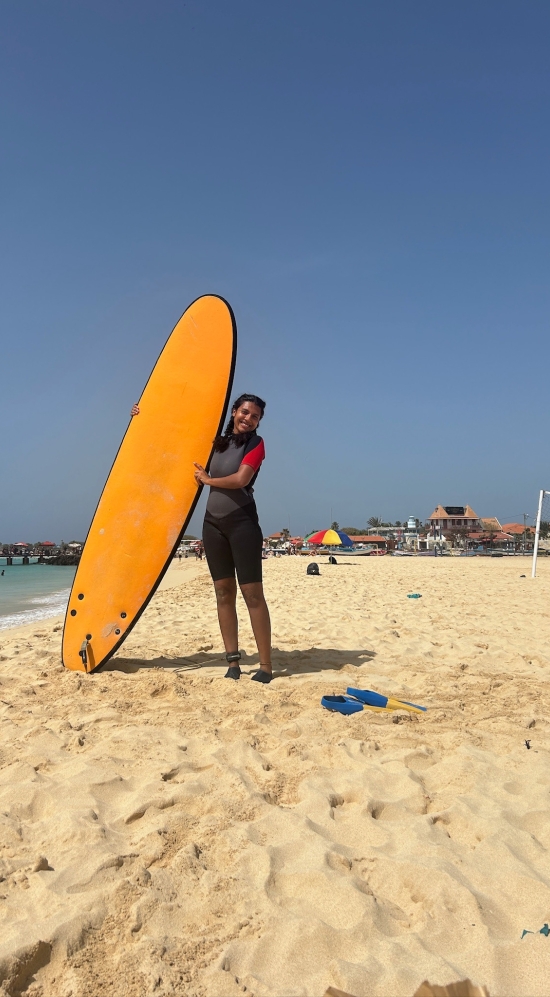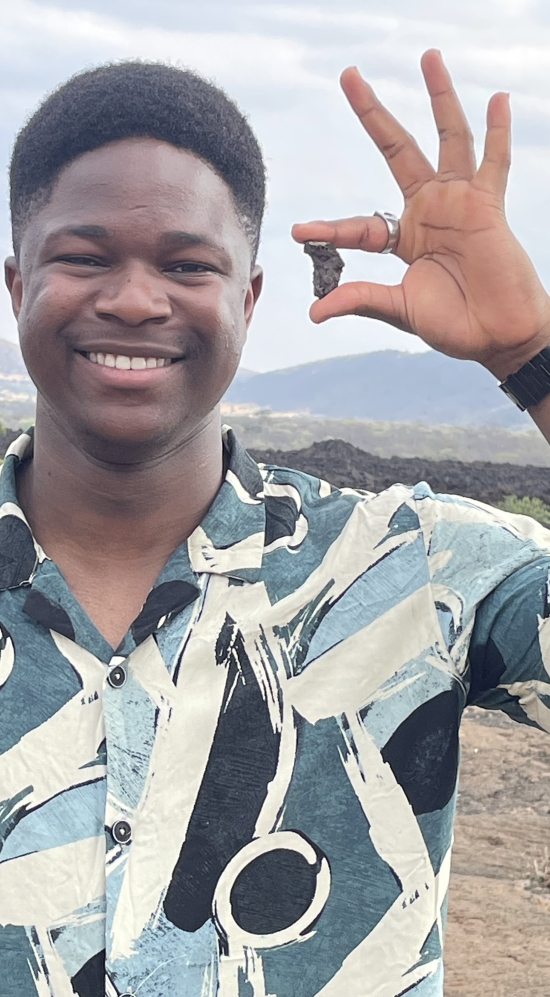The MISTI Africa Program empowers MIT students and faculty to advance knowledge and solve the world’s great challenges by connecting them with leading researchers, companies, and other partners in African countries. Our approach to collaboration is grounded in delivering bi-directional value: contributing to the research, education, and innovation of Africa-based organizations while providing opportunities for MIT students to gain fluency in navigating different cultural contexts.
Current Program Opportunities
Internships
MISTI’s award-winning international internship program provides a one-of-a-kind, world-class experience for MIT students: the opportunity to gain real-life work experience in leading companies and labs around the world. Best of all, all expenses are paid, including airfare.
Internship opportunities are curated with a specific focus on academic-sector and private-sector placements in the domains of AI, Human Health, Climate, and other R&D-heavy global challenges.
MISTI Africa’s mandate is inherently continental in scope. Countries where the program is currently most active include South Africa, Ghana, Kenya, Sierra Leone, Rwanda, Cabo Verde, Namibia, Tunisia, Mauritius, Botswana, Tanzania, Ivory Coast, and others.
MIT currently offers Swahili taught over IAP. Read more here!
- Complete all in-person training requirements
- Minimum GPA of 4.0
- Encouraged to attend Africa-oriented events on campus
- Encouraged to study an African language.
- MIT currently offers Swahili taught over IAP. Read more here!
- While MIT does not currently offer any other African language courses, students may consider cross-registering at Harvard. A list of Harvard's African language courses for the 2025-2026 school year is available here.
Mandatory completion of ONE course from this list. Courses may change depending on course availability. Please check with program leadership for updated lists or to petition an inclusion.
11.005 - Introduction to International Development
11.140 / 11.480 - Urbanization and Development
11.143 - Research Methods in Global Health and Development
15.232 - Breakthrough Ventures: Effective Business Models in Frontier Markets
17.571 - Engineering Democratic Development in Africa
17.572 - Political Economy of Africa
21A.400 - The Stakes of International Development
21A.409[J] - Ethics of Intervention
21G.025[J] - Africa and the Politics of Knowledge
21G.028[J] - African Migrations
21G.326[J] - Global Africa: Creative Cultures
21H.106[J] - Black Matters: Introduction to Black Studies
21H.165 - A Survey of Modern African History
21H.265 - Humanitarianism and Africa: A Critical History
21H.266 - South Africa and Apartheid
21H.358[J] / 21H.958 - Colonialism in South Asia and Africa: Race, Gender, and Resistance
21H.989 - Histories of Extraction and Mining
21L.007 - World Literatures
21M.293 - Musics of Africa
21M.460 - MIT Senegalese Drum Ensemble
HST.434 - Evolution of an Epidemic
STS.088 - Africa for Engineers
STS.032 - Energy, Environment, and Society
STS.417 - Seminar on the Global South
IAP Special Course - Swahili I
You may also petition the inclusion of an MIT class or a course taken at a cross-registered university.
- Informational meetings are available year-round. Contact program lead to schedule.
- Complete the MISTI Launchpad Application – By December 1st, rolling thereafter until March 15th
- Schedule official Interview with Country Program Manager – September to March 15th (Schedule interview as soon as MISTI Launchpad Application is complete)
- Commit to MIT-Africa Program – Latest By March 21st
- Once approved, complete the County-Specific Application – April 1 at the absolute latest.
- Internship matching process – September to April 15, rolling thereafter.
- Mandatory Pre-Departure Sessions – Mid-April to Late May, and MIT-Africa Forums encouraged throughout the year for further enrichment.
- September 1 – Complete evaluation
Global Teaching Labs
Learn through teaching. GTL challenges MIT students to synthesize and present what they know, work in a team, and communicate with peers of a different cultural background, all while sharing MIT's unique approach to science and engineering education with high school students around the world. GTLs are often thematic and offered in several countries every IAP.
GTLs are often thematic. Generally, there are several country options every IAP.
There will be a GTL 2026 info session on September 9th at 5:00 in 34-101.
- Minimum GPA of 4.0
- Interview
- Mandatory Pre-departure preparation
- Encouraged to attend all MISTI Africa affiliated events
- Oct: Pre-selected students are invited to interview shortly after application deadline.
- Nov - Dec: Students selected to participate will attend pre-departure trainings.
- Jan: Most GTL programs take place during the last three weeks.
- Feb: Students attend a mandatory re-entry session upon return.
Applications for GTL 2026 open on August, 27, 2025, and close on September 17, 2025. See more information on the application process here.
Program offerings for MISTI Africa, IAP 2026:
Angola: Renewable Energy Technologies; open to all majors, all levels
Cape Verde: "Problem Solving with App Inventor"; open to all majors, all levels; students with app development and consulting experience particularly encouraged
Ghana: Competition Math; open to all levels
Ivory Coast: Competition Math; open to all levels; French required
South Africa & Botswana: “Quantum Mechanics: Theory and Application"; open to all related fields inclusive of Course 15 and 24
Rwanda: Competition Math; open to all levels
Travel to an African Country with MIT Faculty
Past Global Classrooms have focused on health in South Africa, music in Senegal, and innovation in Kenya.
Study Abroad at the University of Pretoria, South Africa
The University of Pretoria (UP) is one of Africa’s top universities and the largest contact university in South Africa. It produces socially impactful research to find solutions for the world’s most pressing issues.
To qualify, students must meet ONE of the criterion below:
- Majoring in Course 16 - Aeronautics/Astronautics
- Majoring Course 21-African and African Diaspora Studies
- Minoring in Course 21-African and African Diaspora Studies
AND
To qualify, students must meet ALL of the criteria below:
Exchange for Course 16 majors. Applicants for the exchange need to be:
- Have a GPA of 4.3 or above
- In good academic standing
- In good judicial standing
- Up to date with the Communication Requirement
- Up to date with HASS courses
Contact MISTI if you have questions about your particular situation.
Complete the MISTI application for the exchange, including academic recommendation. Once your application is complete, it will be reviewed by MISTI and your department and you may be invited to a ~30 minute informal interview. Following the interview, you will receive a decision on your application and be given two weeks to confirm your space on the program.
Financial Aid:
Financial aid can be used to study abroad during academic terms. Awards will be adjusted based on expenses such as airfare, living expenses, and local tuition costs. Students should meet with their financial aid counselor and a MISTI Program Manager at least one term before they go abroad to start planning how aid will be affected. MISTI and Student Financial Services will work together to gather and verify cost information . Based on this information, financial aid counselors will advise students on their adjusted financial aid packages and process any refunds accordingly.
Scholarships:
Click here to learn more about external study abroad scholarships.
The MIT community may access the MIT-Africa Program Pre-Departure Training, an online course available on MITx.
Cultural Trainers

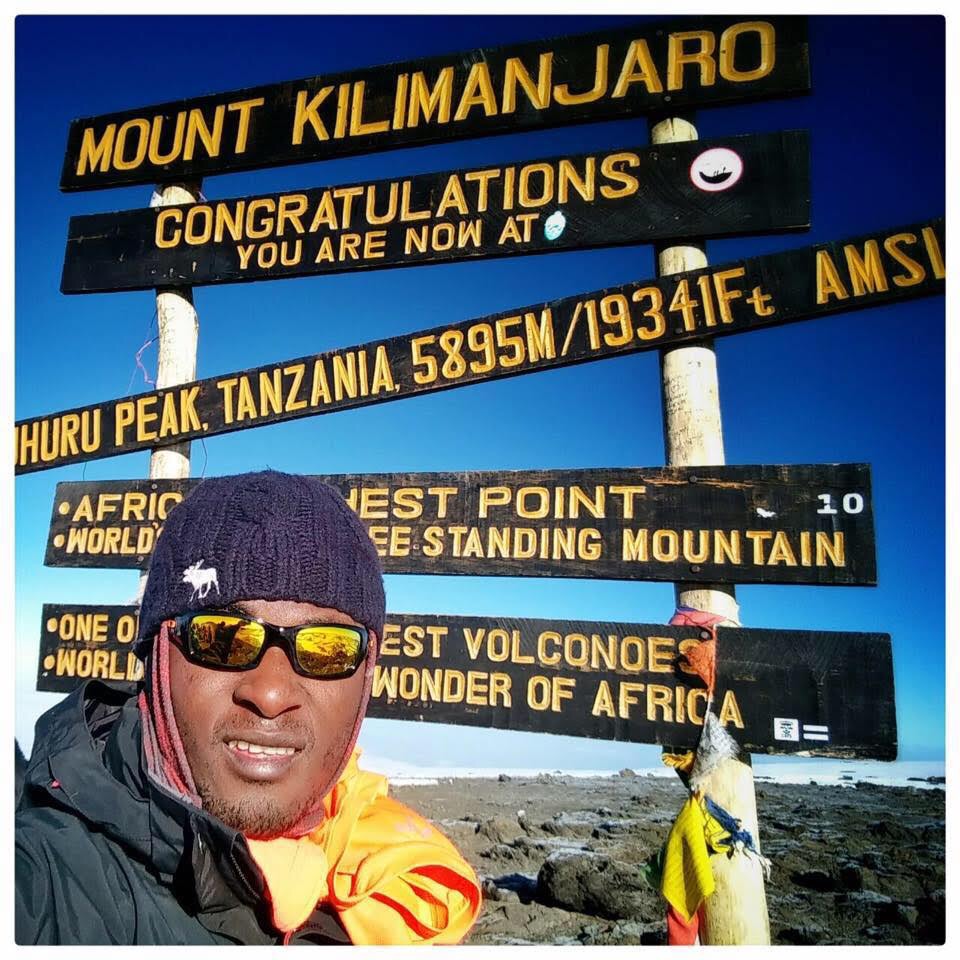
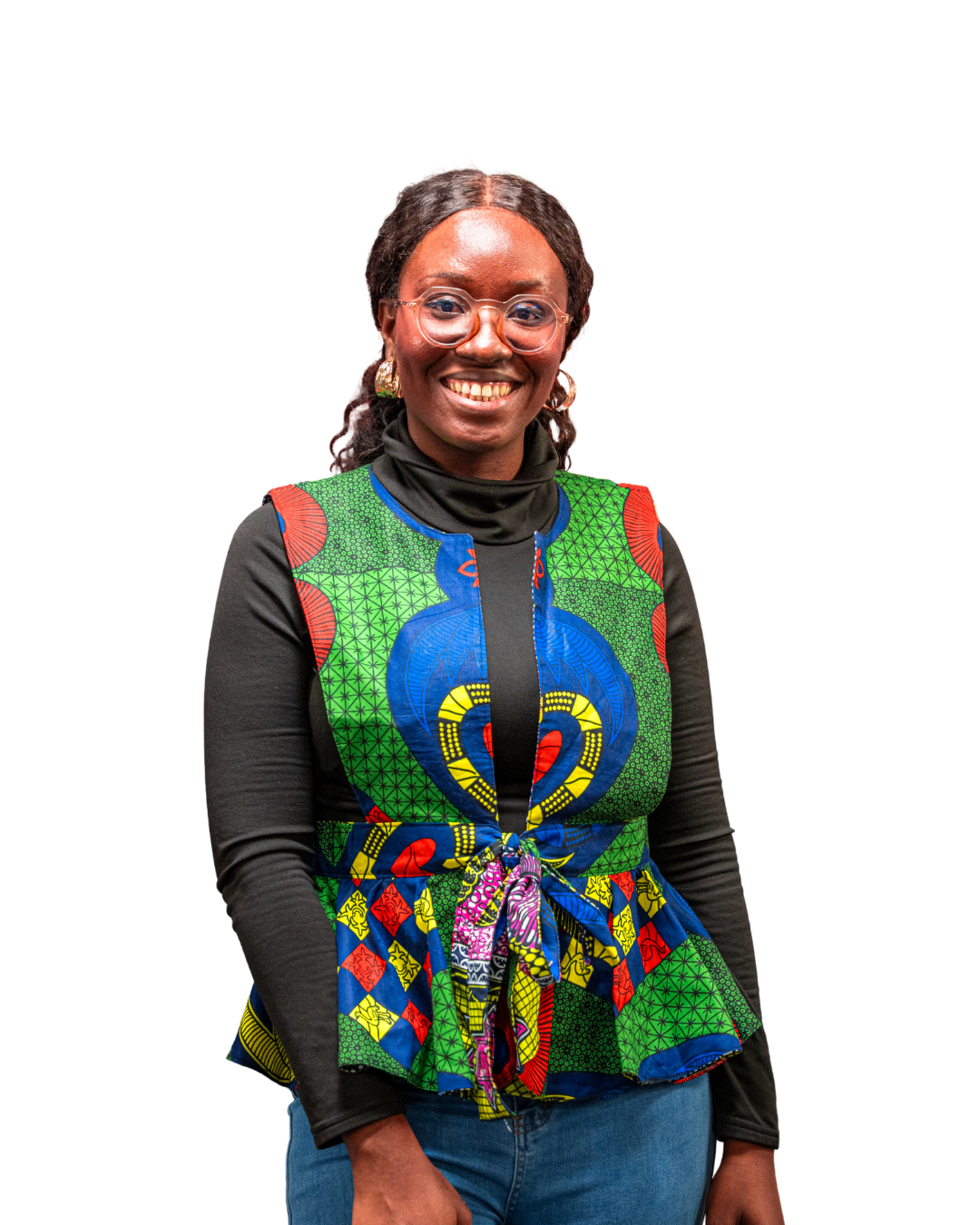
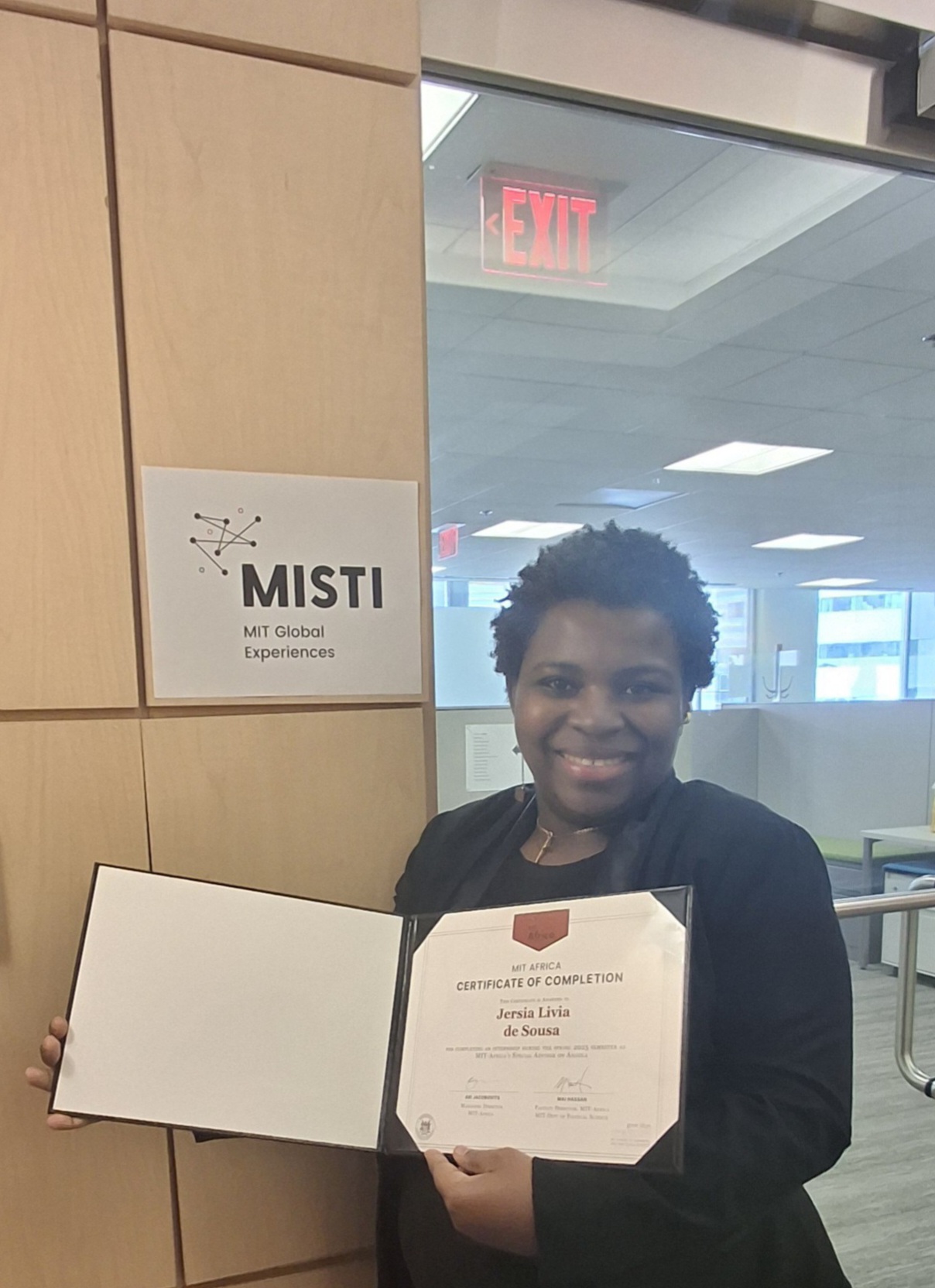
João Resende-Santos
João Resende-Santos is Associate Professor of International Studies at Bentley University in Waltham, MA. Born in Cabo Verde and raised in the US, he has engaged in practitioner work as an international consultant, policy advisor, and higher education leader in Cabo Verde, including serving as interim dean of the school of business and governance at the public university. Find João on LinkedIn,
Mini Kouame
Mini Kouamé, CQF is a Financial Economist and Strategic Advisor, bridging international development and global capital markets. Trained as a young mathematician talent in Cote d'Ivoire, Mini is the founder of Transat Management Company (TMC), a Boston-based quantitative Investment management firm that specializes in institutional capital diversification. Find Mini on LinkedIn.
Gladys Rita Ainoo
Gladys Rita Ainoo is a graduate of The Fletcher School at Tufts University, where she specialized in International Development and Global Governance & Organizations. Gladys has worked with Global MIT, contributing to communications, strategy, and community engagement across programs that support innovation and global collaboration. Find Gladys on LinkedIn.
Jersia de Sousa
Jersia has a degree in Petroleum and Natural Gas Engineering from METU-NCC in Turkey and about 5 years’ experience in the oil and gas industry. She is also an alumna of MIT Special Program for Urban Studies (SPURS) at DUSP in Technology Policy and Management. Jersia is the founder and Director of Otchali4Her, a NGO that empowers girls and young women in STEM and promotes digital literacy across Angola. Currently, Jersia dedicates her full time at her organization, Otchali4Her. Find Jersia on LinkedIn.
Featured Video
Peter Williams, Mechanical Engineering '22, describes his experience as a research intern with the Structured Light Laboratory at Wits University in Johannesburg.
Press Coverage
- Sudan Is What Happens When You Recognize a Junta (Mai Hassan) - The New York Times
- Sudan Is Unraveling (Mai Hassan and Ahmed Kodouda) - Foreign Affairs
- "Tech Park CV e MIT capacitam jovens cabo-verdianos com formação em tecnologia e inovação " - Rádio Televisão Cabo-verdiana
- "Innovator in Chief" - MIT Technology Review
- "AXIAN Telecom and MIT Africa Empower African Youth Through STEM Education Initiative in Ivory Coast" - Tech Africa News
- "Le Grand Talk du 08 Janvier 2025" - Life TV Côte d'Ivoire
- "New MIT internships expand research opportunities in Africa" - MIT News
- "2023 NCAA Woman of the Year Finalist: Kristen Palmer" - NCAA
- "Interview: Bill Gates – ‘Coronavirus will cost far more than $3 trillion’" - The Africa Report
- "It all adds up" - MIT News
- "Expanding education: From Africa to Cambridge and back again" - MIT News
- "Ghana Codes Introduces students in Ghana to Programming" - ChannelOne TV Ghana
Meet Your Program Manager

Get in touch with Ari Jacobovits, Managing Director for MIT-Africa, to get your questions answered.
Meet Your Program Assistant
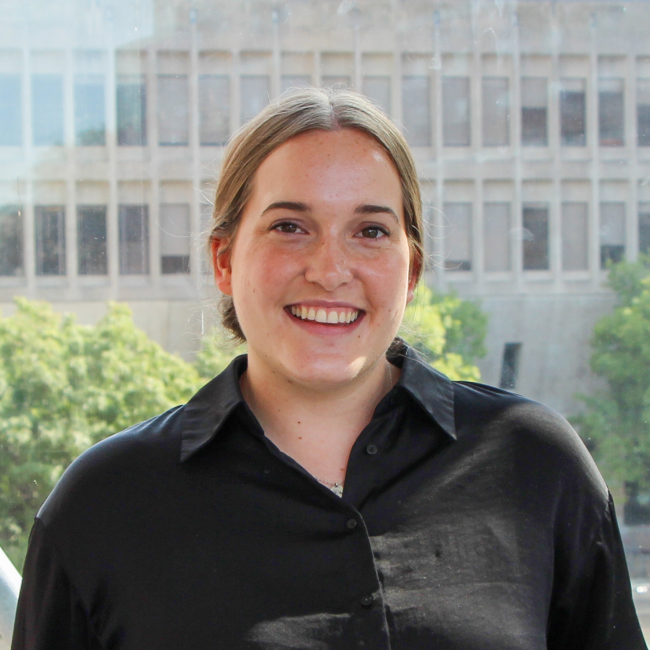
Get in touch with Brenna Ketchum, Program Assistant for MIT-Africa, to get your questions answered.



